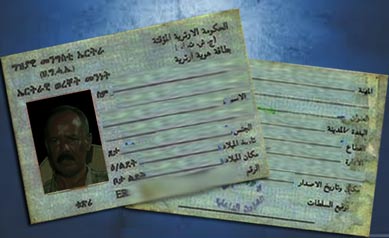Is PFDJ Fanning Sudan’s “Currency War”?

In late August, the Sudanese regime rounded up over sixty Eritrean businessmen and PFDJ functionaries and is detaining them in Khartoum’s central prison, Kober, pending investigations on the origins of millions worth of Sudanese currency (Sudanese pound or jineh) they were caught with.
The issue surfaced when Sudan abruptly issued new currency following the secession of South Sudan. South Sudan introduced its currency (South Sudan Pound) on July 21, and announced that it would give its citizens two months to turn in the old Sudanese pound. A week later, Sudan issued new currency, and there had been speculations that this would generate “currency war.” Allegedly, the Eritrean businessmen—mostly currency exchange brokers—were attempting to convert unusually large sums of Sudanese currency which had been smuggled from Eritrea by the PFDJ.
It is further alleged that the old Sudanese currency (the pound) was flown on private planes from South Sudan, accompanied by South Sudan officials. According to our sources, security officers in Sudan are also investigating dubious accounts with large balances belonging to Hagos “Kisha” and Yemane Gebreab, who are, respectively, the financial and political directors of Eritrea’s ruling party.
General Tekle Manjus, the commander of the Eritrean region bordering Sudan, is considered the main facilitator of the currency smuggling operation. The Somalia Eritrea Monitoring Group also named him as the co-ordinator of the human smuggling operation which continues to be a major revenue source for the PFDJ.
For Eritreans and Ethiopians, there is an element of déjà vu in this development. In 1997, around the time that the Eritrean regime was introducing a new currency, Nakfa, the Ethiopian government abruptly changed its currency, the Birr. The two governments couldn’t come to terms on the exchange rate—with Eritrea requesting that a 1:1 exchange rate be maintained while Ethiopia requested an exchange rate based on the hard currency value of each currency. Ethiopia insisted on enforcing this requirement even on small cross-border trade and the Eritrean regime was holding millions of old Ethiopian currency that were suddenly worthless. The bitterness from this decision was, according to some analysts, the major cause for what ended up being described as the 1998 “border war.”
The relationship between Sudan’s Omar Albashir and Eritrea’s Isaias Afwerki, a marriage of convenience of sorts, is being severely tested by this new crisis. The Eritrean president dispatched his foreign minister, Osman Saleh, to meet with his counterpart in Sudan, as well as the Sudanese president. The Eritrean embassy in Sudan is requesting that the Sudanese government release the Eritrean prisoners.


Awate Forum